10 on-demand services to budget for in 2026 (and why Car Sharing should be #1)
Budget season is here for multifamily property managers and corporate real estate teams. As you finalize your 2026 amenity budgets, on-demand services continue to rank among the most requested features by residents and employees.
The shift toward on-demand amenities reflects changing preferences. Today’s renters prioritize convenience and flexibility over ownership and long-term commitments. They want services available when needed, without the hassle of managing vendors, scheduling, or coordinating logistics themselves.
If you’re evaluating which on-demand services deserve a place in your 2026 budget, here are 10 options property managers are considering, ranked by impact and value.
1. Car Sharing
Car sharing tops this list because it addresses multiple budget priorities simultaneously. Unlike other on-demand services that solve a single problem, car sharing impacts resident retention, parking management, competitive positioning, and operational efficiency.
Properties offering car sharing provide residents with access to vehicles when needed, without the cost and commitment of ownership. Residents can book vehicles by the hour for errands, appointments, weekend trips, or emergencies. This appeals particularly to younger renters who prioritize access over ownership.
Budget Considerations: Car sharing can be structured as capital expenditure (similar to adding a gym or rooftop deck) or as an ongoing operating expense (like other contract services). The flexibility in budget categorization makes it easier to fit into existing financial structures.
Why It Should Be Your Top Priority: Car sharing serves as both a retention tool and a parking management solution. Properties with comprehensive amenity packages, including transportation options, report improved resident satisfaction. Additionally, shared vehicles reduce parking pressure by decreasing the number of resident-owned cars, which can delay or eliminate the need for expensive parking infrastructure expansion.
For properties in competitive markets, car sharing has become a standard amenity. Prospects actively compare amenity offerings across buildings, and the absence of car sharing can put properties at a disadvantage during the leasing process.

2. Dog Walking Services
Pet-friendly properties continue to grow in popularity, and dog walking services provide significant value to pet-owning residents. These services handle daily walks, bathroom breaks, and exercise while residents are at work or traveling.
Budget Considerations: Most properties partner with third-party dog walking platforms rather than hiring staff directly. This limits financial risk and provides residents with flexibility in scheduling and pricing.
Value to Residents: Dog walking services reduce stress for pet owners with demanding work schedules. They eliminate the need for residents to rush home during lunch breaks or worry about their pets during long days.

3. House Cleaning Services
House cleaning ranks consistently among the most desired on-demand services. Residents with busy schedules appreciate the convenience of booking professional cleaning without researching providers, vetting quality, or managing payment separately.
Budget Considerations: Properties typically partner with established cleaning service platforms. The property’s role is to facilitate the partnership and promote the service to residents, rather than managing operations directly.
Value to Residents: Regular cleaning services save time and reduce household management stress. For properties targeting young professionals or dual-income households, this amenity directly addresses their lifestyle needs.
4. Package Management Solutions
Online shopping continues to increase, making package management systems critical for multifamily properties. Solutions range from dedicated package rooms with controlled access to smart locker systems that notify residents when deliveries arrive.
Budget Considerations: Package management systems require upfront investment for infrastructure (lockers or dedicated space) and ongoing costs for technology platforms that track deliveries and send notifications.
Value to Residents: Package management eliminates delivery anxiety and reduces theft. Residents no longer worry about missing deliveries or packages sitting unattended in common areas.
5. Laundry Services
On-demand laundry services go beyond traditional coin-operated machines. Modern laundry amenities include wash-and-fold services, dry cleaning pickup, and app-based payment systems that eliminate the need for quarters.
Budget Considerations: Upgrading laundry facilities can be structured as capital expenditure. Partnering with wash-and-fold services typically involves revenue-sharing arrangements rather than direct costs to the property.
Value to Residents: Laundry services save time and eliminate the hassle of managing this weekly chore. For properties without in-unit washers and dryers, premium laundry amenities become a significant differentiator.
6. Grocery Delivery Partnerships
Grocery delivery partnerships provide residents with access to convenient food shopping without leaving the property. Some properties negotiate preferred rates or promotional codes with delivery services as an added benefit.
Budget Considerations: Most grocery delivery partnerships require minimal budget allocation. The primary investment is staff time to establish relationships and promote the service to residents.
Value to Residents: Grocery delivery reduces errands and saves time, particularly for residents without personal vehicles or those with mobility limitations.
7. Maintenance Request Apps
Digital maintenance request systems streamline communication between residents and property management teams. Residents submit requests through apps, track progress, and receive notifications when issues are resolved.
Budget Considerations: Maintenance apps are typically included in property management software subscriptions. Standalone solutions range from affordable monthly fees to more expensive enterprise platforms.
Value to Residents: Digital request systems provide transparency and reduce frustration. Residents appreciate knowing their requests were received and can track resolution progress without calling the management office repeatedly.
8. Concierge Services
Concierge services handle various resident needs, from restaurant reservations and event ticket purchases to travel planning and local recommendations. Some properties staff concierge desks during business hours, while others provide virtual concierge access through apps.
Budget Considerations: Full-time concierge staff represents a significant ongoing expense. Virtual concierge platforms offer more budget-friendly alternatives with lower monthly costs.
Value to Residents: Concierge services enhance the resident experience and create a premium feel. They’re particularly valuable in luxury properties where residents expect white-glove service.
9. Fitness Class Bookings
On-demand fitness class booking systems allow residents to reserve spots in yoga, cycling, HIIT, or other group fitness classes offered at the property. Some properties also partner with fitness apps that provide virtual class access.
Budget Considerations: Fitness class systems require investment in scheduling software and potentially instructor fees. Virtual fitness partnerships typically involve monthly platform subscriptions.
Value to Residents: Fitness class bookings add value to existing gym amenities. They create community among residents who attend classes together and increase utilization of fitness spaces.
10. Dry Cleaning Pickup
Dry cleaning pickup services collect garments from residents and return them cleaned and pressed. This service eliminates trips to the dry cleaner and saves time for busy professionals.
Budget Considerations: Dry cleaning partnerships typically operate on a revenue-sharing model. The property provides space for pickup and drop-off, while the service handles operations.
Value to Residents: Dry cleaning pickup saves time and eliminates errands. For professionals who wear business attire regularly, this convenience significantly improves their daily routine.
How to Prioritize On-Demand Services in Your 2026 Budget
Not every property can budget for all 10 services. Here’s how to prioritize:
Consider Your Resident Demographics: Young professionals value time-saving services like house cleaning and laundry. Families with pets prioritize dog walking. Properties with significant commuter populations benefit most from car sharing.
Evaluate Current Gaps: Review resident surveys, online reviews, and leasing feedback. Which services are residents requesting? Where are competitors offering amenities you lack?
Calculate ROI Potential: Some services directly impact retention (car sharing, package management), while others enhance satisfaction without measurable financial impact. Focus budget dollars on services with clear ROI.
Start Small and Scale: Consider pilot programs for new services before committing to full implementation. Test adoption rates and gather feedback before expanding.
Bundle Related Services: Properties offering comprehensive on-demand amenity packages create stronger value propositions than those offering single services. Consider how services complement each other.

Why Car Sharing Deserves the Top Spot
Car sharing stands apart from other on-demand services because it addresses multiple budget priorities simultaneously. It functions as a retention tool, parking management solution, competitive differentiator, and resident convenience feature.
Properties evaluating car sharing for 2026 should consider where it fits within their existing budget structure. The service can be categorized as capital expenditure, operating expense, or even positioned as an ancillary income opportunity if access fees are charged to residents.
Most importantly, car sharing aligns with broader shifts in how people think about transportation. Younger generations increasingly prioritize access over ownership, and car sharing delivers exactly that without requiring residents to own, insure, or maintain personal vehicles.
Next Steps for Your 2026 Budget
Budget season typically concludes by December for most property management companies. If on-demand services are on your radar for 2026, now is the time to evaluate options and secure approval.
For properties considering car sharing specifically, December approvals enable Q1 2026 launches, positioning you ahead of the spring leasing season. Properties that wait until January typically face delayed implementations that push into late spring or summer.
As you finalize your 2026 amenity budget, remember that on-demand services aren’t just trendy additions. They reflect fundamental shifts in how residents want to live. Properties that adapt to these preferences position themselves competitively, improve retention, and create living environments that match modern lifestyles.
Ready to add car sharing to your 2026 budget? Schedule a consultation to receive a customized cost analysis and implementation planning for your property.


